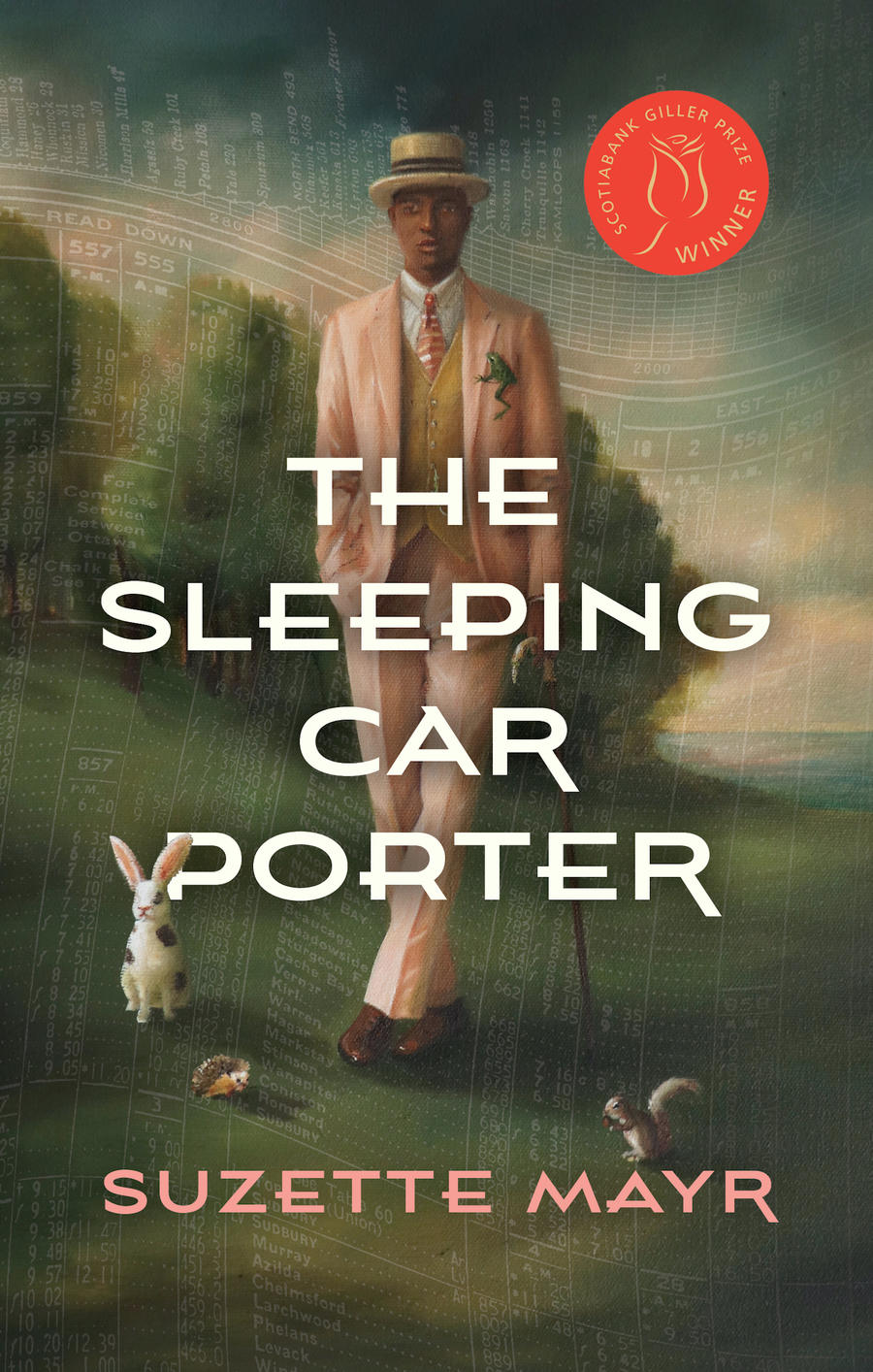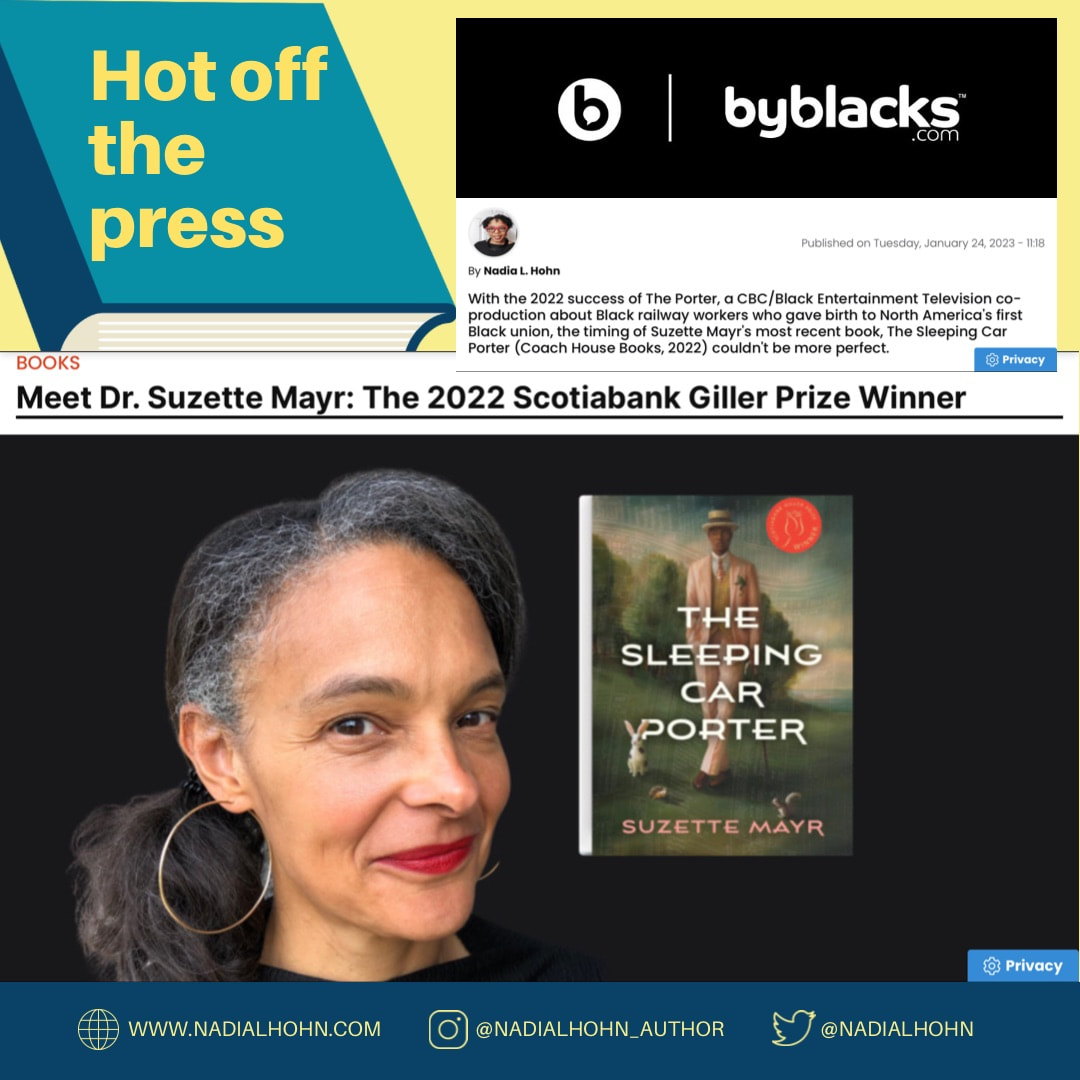
Due to space considerations for the article, I could not include all of the questions that I asked Suzette Mayr. Please find below Dr. Mayr's response to the question about inspiration, as well as her thoughts
My decision to write the novel was the result of a kind of challenge posed by one of my former writing teachers, the poet Fred Wah. One day more than 20 years ago he said to me out of the blue, “Suzette, you have to write about the porters!” I didn’t know what he was talking about, and I didn’t know what history he was referring to. Then he told me about how when he was a kid he was traveling on a train on the way to a Scout Jubilee or something like that, and a porter on the train brought out his trombone (Fred plays the trumpet), jammed with the kids, and it was a fond memory for Fred. I started doing some research into sleeping-car porters in Canada and I learned that they were almost all black men; that portering was perhaps the best-paid job a black man in Canada could get, but they regularly faced terrible prejudice; that porters had a key role in labour and civil rights in Canada; and that some porters were either the fathers of famous Canadians like pianist Oscar Peterson, or they went on to become famous people in their own right, like Rufus Rockhead of Rockhead’s Paradise and Stanley G. Grizzle.
Writing the book was also about trying to find a history that’s unrecoverable or that has been lost or deliberately hidden, but that I desperately wanted or maybe even needed. Saidiya Hartman writes about “critical fabulation” which I understand as a writing/research process a writer can use when there’s only so much historical or archival information available about a particular subject: when the available archival information falters, as an academic or a writer you can take that patchy archival information and try to fill in the gaps with fictional renderings of what might have happened. I’m writing about a gay, black man in the 1920s who works on a train during a time when queerness in Canada was punishable by prison or worse, and during a time of really intense anti-black racism. There are no records beyond sketchy criminal court records of how someone like my main character might have lived or felt, but in order to understand myself as a black, queer person, I needed to “find” those records to understand my place and who I am. My need to find an ancestor – to find black, queer family – kept me going through the process of writing this book.
Why was it important for Baxter to want to become a dentist?
I needed to give Baxter a passion that could keep him going as a porter, and give him a goal to work towards so that he could endure the drudgery and humiliation of being a sleeping car porter in 1929.
Looking into people’s mouths can tell you so much about them: whether they eat well, their stress levels, their childhood, and their hobbies. Baxter has to know the passengers better than they know themselves to anticipate their needs and get good tips. Teeth and mouths represent yet another way he can get inside them and understand them.
I had to check if The Scarab of Jupiter book was real and it isn’t. But it felt real, reminiscent of the time when zombie, low budget horror movies dominated that period. Why was the Scarab of Jupiter important?
It was super important because for Baxter as a character The Scarab from Jupiter was the only way he could get out of his immediate situation without physically leaving. The book for Baxter is a solace and sanctuary; it’s representative of the fact that there’s more to life than being a sleeping car porter, and that the powerful people who rule over him don’t always win. The customer isn’t always right; sometimes the customer has their brain eaten by alien insects.
At one point, the conductor or Baxter’s boss said, “Click click click, boy.” What was happening there?
For me, that moment is when Baxter has reached a level of such profound frustration with and hatred of the job and the passengers he has to deal with that he disassociates and becomes a robot like the robots he reads about in his science fiction magazines – because only a robot could put up with the racism and rottenness of the job. At that moment, he’s snapped, but even so his body knows that he can’t let the passengers or the conductor see that he’s snapped, so he deduces himself to be an inanimate object.



 RSS Feed
RSS Feed